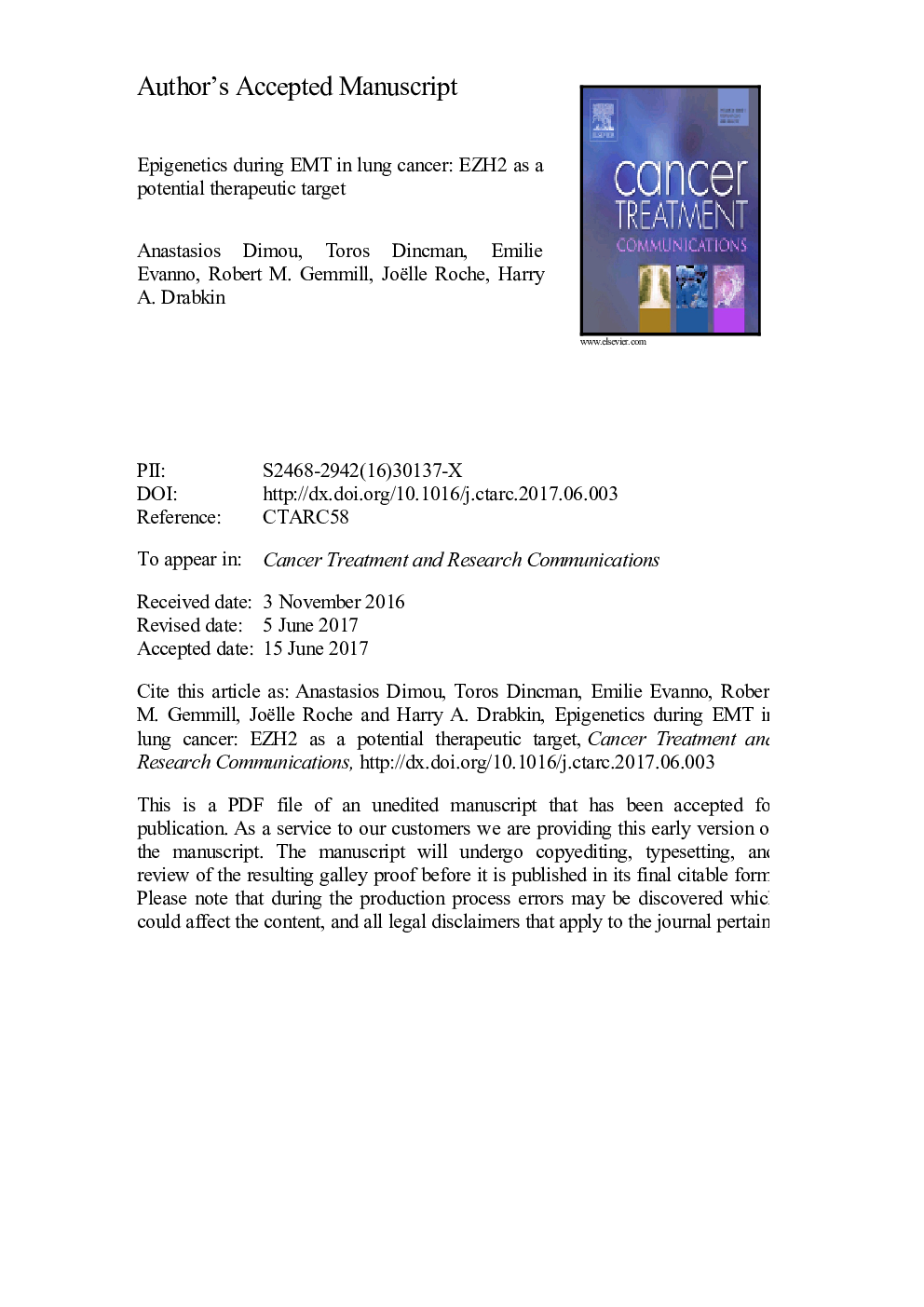| Article ID | Journal | Published Year | Pages | File Type |
|---|---|---|---|---|
| 5697536 | Cancer Treatment and Research Communications | 2017 | 37 Pages |
Abstract
Cancer is a disease of dysregulated growth and differentiation, along with the ability of the cancer cell to invade, metastasize and escape immune surveillance. Altered transcription factor activity from mutations, gene fusions, copy number alterations and growth factor signaling contributes substantially to the malignant phenotype. In addition, transcriptional deregulation has increasingly been shown to result from alterations in epigenetic modifying genes. In part, epigenetic regulation includes DNA methylation, as well as the covalent modification of histones by druggable targets that control chromatin accessibility. One epigenetic modifier, EZH2, is the catalytic subunit of Polycomb Repressor Complex 2 (PRC2) that methylates lysine 27 of histone H3 (H3K27) associated with gene silencing. Of note, the activities of PRC2 and the nucleosome remodeling complex, SWI/SNF, are antagonistic and mutations in the SWI/SNF subunits, BRG1 and ARID1a, result in EZH2 dependency and sensitivity to EZH2 inhibitors. Mutations of BAP1, seen frequently in mesothelioma, have also been associated with EZH2 inhibitor sensitivity. In lung cancer and other malignant diseases, the upregulation of EZH2 is often a poor prognostic factor. However, in some cellular contexts, loss of EZH2/PRC2 function has also been linked to disease progression. Thus, understanding the biology and regulation of EZH2 is critical for the rational use of EZH2 inhibitors.
Related Topics
Health Sciences
Medicine and Dentistry
Oncology
Authors
Anastasios Dimou, Toros Dincman, Emilie Evanno, Robert M. Gemmill, Joëlle Roche, Harry A. Drabkin,
